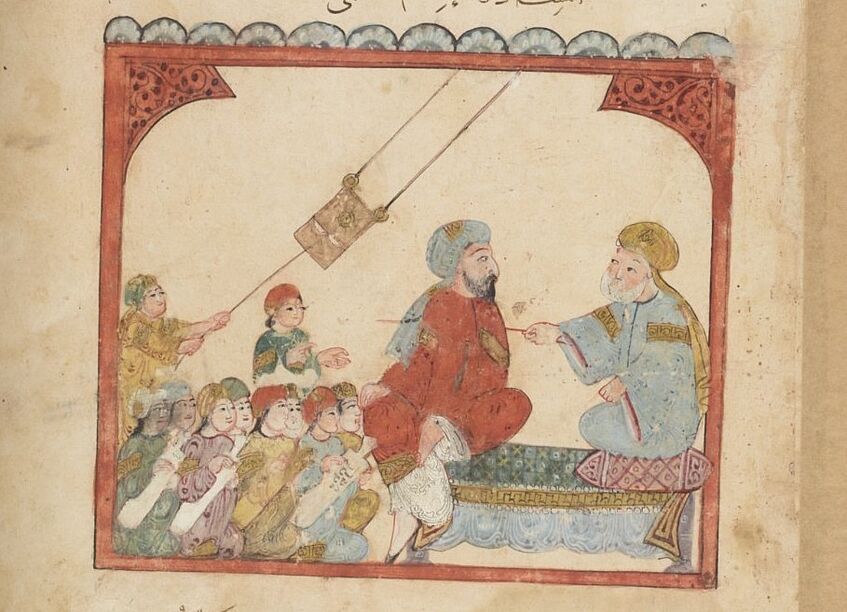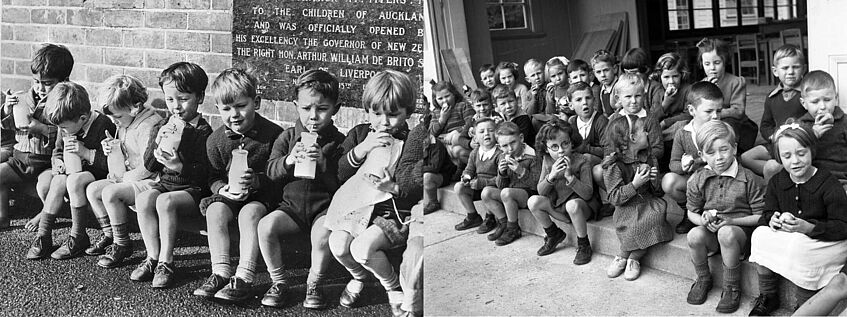History of Education
Education means different things to different people in different contexts and is a central aspect of all global cultures. Through studying the history of education, we try to understand cultures of the past. The history of education is an open and internationally connected discipline that depends on cooperation with other disciplines in the humanities, social and natural sciences. We are interested in ideas of practices of education in the past, and, therefore, in people as well as institutions. The history of education examines a wide range of material such as texts, images, films and objects and, thereby seeks to continually question our perspective on the past.

The best depictions of medieval Makhtabs, that is, Qur'an schools, are found in editions of the Maqamat of al-Hariri, a twelfth-century episodic novel that has become one of the great classics of Arab literature. In this scene, the novel's protagonist Abu Zayd disrupts the day's lesson. Bibliothèque nationale de France, Les Makamat de Hariri ; exemplaire orné de peintures peintes par Yahya ibn Mahmoud ibn Yahya (Bagdad, 1236-1237), http://archivesetmanuscrits.bnf.fr/ark:/12148/cc328777.
Image source: https://gallica.bnf.fr/ark:/12148/btv1b8422965p/f313.image

In 1937, the New Zealand Labour government launched the world's first programme that distributed free milk to school children every day. The typical cardboard bottle tops have since become collectors' items - few have survived, since they were excellent for flicking through the air with two fingers. During WWII, apples were added to the programme. The scheme ended in 1967. For more information, visit https://nzhistory.govt.nz.
Image sources:
https://natlib.govt.nz/records/23113216
https://natlib.govt.nz/records/22567578
